
Bidding Farewell to the Fellows of 2018–19
With the arrival of summer, the 2018–19 fellowship year has drawn to a close and the Center staff bids farewell to the remarkable scholars who have formed a close-knit community over the past nine months.

With the arrival of summer, the 2018–19 fellowship year has drawn to a close and the Center staff bids farewell to the remarkable scholars who have formed a close-knit community over the past nine months.
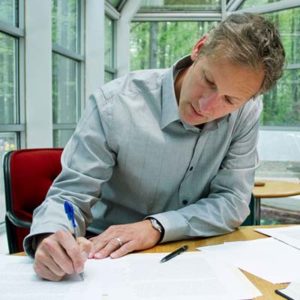
The National Humanities Center is pleased to announce the appointment of 37 Fellows for the academic year 2019–20. These leading scholars will come to the Center from universities and colleges in 14 U.S. states, as well as from Singapore, Tanzania, the United Kingdom, and Zimbabwe. These newly appointed Fellows will constitute the forty-second class of resident scholars to be admitted since the Center opened in 1978.
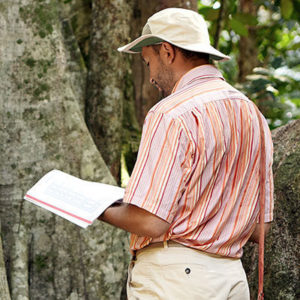
How do humanities scholars approach environmental topics? How does their work complement and complicate the work of scientists? And what does their research, analysis, writing, and teaching add to the ways we understand environmental issues? Join us for these public discussions with leading environmental humanists as we explore how they became interested in their fields, what fuels their passion for their subjects, the questions that intrigue and perplex them, and the ways their work influences how they think about the world.

In the closing months of World War II and its aftermath, how did Italians come to terms with their recent history? How did they go about remembering and/or distancing themselves from the legacies of Fascism? In this scholarly conversation, Fellows Simonetta Falasca-Zamponi and Mia Fuller discuss how Italians contended with these questions.

Successful DH initiatives must be carefully conceived and managed over time to realize their scholarly potential. This day-long conference focused on planning, logistics, and long-term maintenance of digital humanities projects.
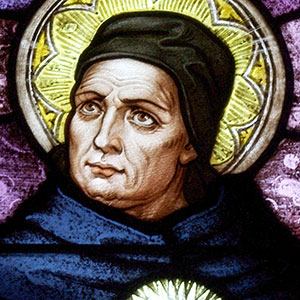
Contemporary thinking in fields from political ethics to psychology has been shaped by the writings of Thomas Aquinas, but his model of the mind has been ignored or misunderstood by scholars. In this podcast, Fellow Thérèse Cory reminds us why Aquinas’ relevance extends across disciplines and centuries, and advocates putting him back into conversation with his scholarly influences.

Known for its functionalist structures and unadorned style, the influence of the Bauhaus school continues to this day, informing design choices in a wide variety of fields. In this podcast, Fellow Elizabeth Otto maps the aesthetic and intellectual lineage of Bauhaus, paying special attention to the many figures—especially women—who’ve been overshadowed by more celebrated colleagues.

In the seventeenth century, the notion of the infinite universe was so controversial that believers could be burned at the stake. Today, however, the concept of infinity is commonplace, integrated into science and math curricula, and used as a metaphor to describe the inconceivable. In this podcast, Fellow John H. Smith traces the shifting understandings of the infinite across the long eighteenth century. His project ultimately locates the infinite at an interdisciplinary crossroads, demonstrating the interconnectedness of the sciences and the humanities.
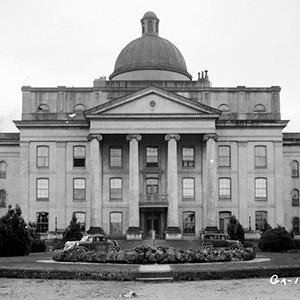
Georgia’s antebellum state capitol, Milledgeville, was also home to the state mental hospital, an institution founded in 1842 which eventually became the largest asylum in the world. Fellow Mab Segrest is at work on a project considering how the hospital’s history reveals the relationships between psychiatry and white settler colonialism. In this podcast, she discusses the social function of mental hospitals in the South. At the nexus of U.S. psychiatry and the emergence of racism, the history of the Milledgeville asylum has broad and urgent implications for today’s mental health facilities and their treatment of patients.
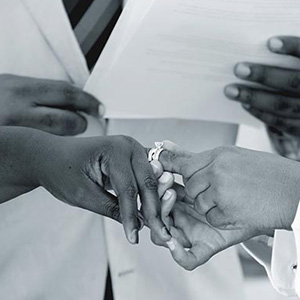
For centuries marital status has been an important social marker, providing access to a variety of legal rights and contributing to a sense of social stability. Further, since marriage has been seen as fundamental to preserving social and familial norms, it has been considered a central element for ensuring socioeconomic success and social respectability among African Americans and others. Two of this year’s Fellows will discuss the fraught history of marriage and marital rights for African Americans—as well as the ways cultural expectations about marriage have shaped the lives of African American women over the past century—with Tania Munz, vice president for scholarly programs at the Center.